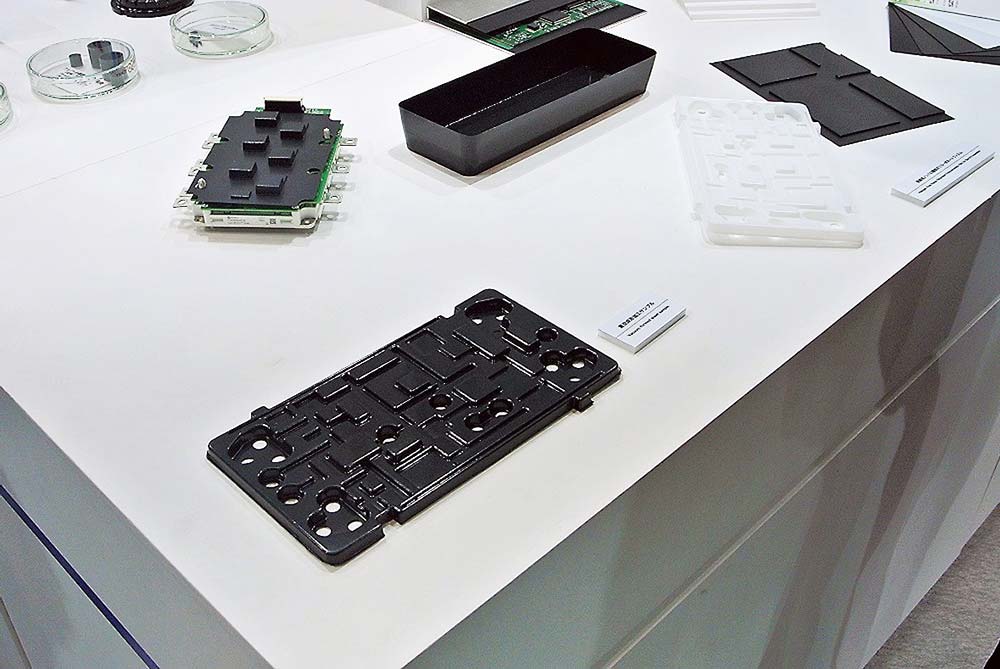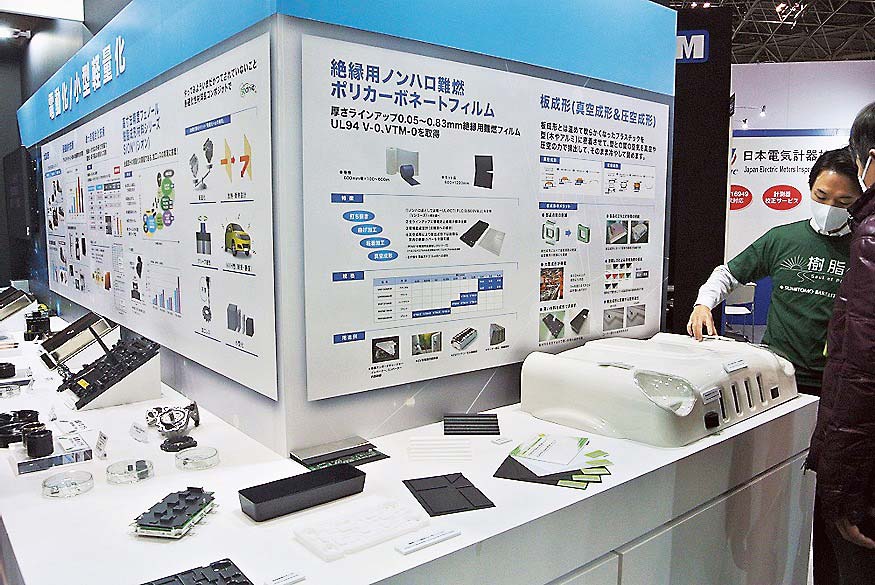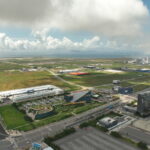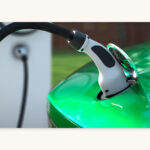ASIA ELECTRONICS INDUSTRYYOUR WINDOW TO SMART MANUFACTURING
Sumitomo Bakelite's Novel Sheet Expands Adoption
Sumitomo Bakelite Co., Ltd. said its flame-retardant polycarbonate sheet for insulation (SUNLOYD ECOSHEET® POLYCA) has growing demands in high-voltage applications. Particularly, inverters, on-board chargers, LiB, and motor peripherals) for electric vehicles (xEV).
Essentially, the product achieves high flame resistance without using organic fluorine compounds (PFAS) or halogenated flame retardants. In addition, it has also obtained the highest rank in tracking resistance, CTI: PLC 0 (600 V or higher), according to UL standards. Aside from its environmental friendliness, the product has been adopted by automotive component manufacturers as a product that contributes to greater design flexibility by shortening creepage distances. Specifically, due to its high tracking resistance and by downsizing equipment through thermoforming to suit the shape of the part.

Tracking Resistance, PFAS-Free
As there is a growing trend in regulating PFAS, a common flame-retardant additive for polycarbonate, demand for flame-retardant polycarbonate sheets for insulation is increasing as well. Moreover, to improve xEV functionality, there is a need for higher voltages as well.
While achieving high flame resistance without the use of PFAS, Sumitomo Bakelite said this product can solve many issues. Among them, are the shortening creepage distance due to high tracking resistance and the downsizing of equipment with thin-walled parts by utilizing thermoforming. Furthermore, it can also help address reducing man-hours by simplifying the fixing method, and at the same time improve design flexibility.
Unique Design
Meanwhile, the uniquely designed V Series of SUNLOYD ECOSHEET POLICA flame-retardant polycarbonate sheet comes with high flame resistance and excellent tracking resistance. Moreover, it is the only polycarbonate sheet for insulation that does not use PFAS. In addition, it has excellent processability and high heat resistance, the highest rank of tracking resistance under the UL standard CTI: PLC0 (600V or higher). It does not use halogenated flame retardants and is certified as V-0 under UL94.

When used as an anti-insulation component, the V Series contributes to the miniaturization and thinning of customers’ products. This is because it can reduce the creepage distance of insulated parts and can increase design flexibility. Moreover, it contributes to improving safety through its resistance to tracking. This has led to widespread adoption in inverters, onboard chargers, lithium-ion batteries (LIBs), motor peripherals, and other applications.
The need for even higher capacity, higher output, and faster charging of batteries has increased the need for insulating materials with high tracking resistance performance for power supply-related systems and high-voltage products. The standard thickness of this product is 0.41-0.83 mm, and thinner specifications are available upon customer request while maintaining tracking resistance.




